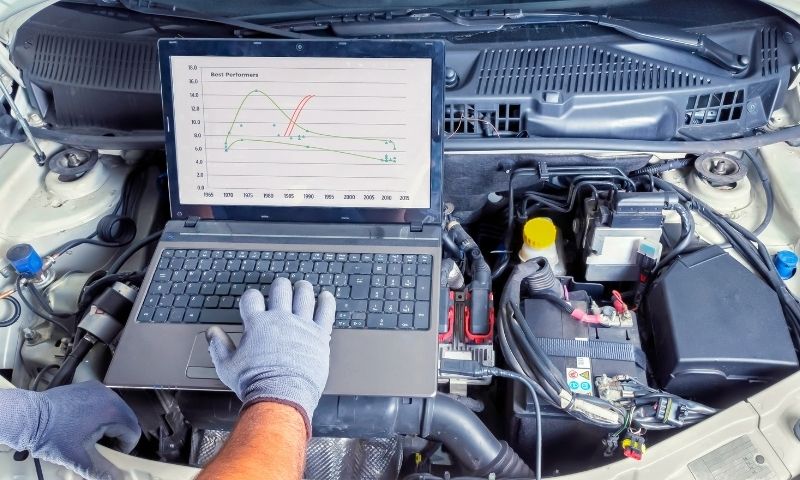A Leading Resource Built By Automotive Lovers, For Automotive Lovers.
We’ve helped consumers around the world make their purchasing decisions.
Latest Articles
No, a battery charger cannot act as a memory saver. It does not have a power supply mode and needs a minimum voltage to work. When connected to battery clamps,… The Snapper XD Lawn and Garden system uses Briggs & Stratton 82V Max lithium-ion batteries. These batteries deliver strong performance and dependable power for outdoor tools. Their design ensures effective… You should not use a 9.6V charger for a 7.2V lithium battery. The 9.6V charger has a higher voltage than what the battery can safely handle. This can lead to… {Ryobi’s new 3AH battery features Chinese 18650 lithium-ion cells. These cylindrical and rechargeable cells are popular in power tools. They offer a strong balance of capacity, size, and weight. Since… The 2007 Nissan Altima Hybrid uses Panasonic NP2 battery modules. This new, OEM replacement fits 2007-2011 models. Green Bean offers a high-capacity option with a 3-year warranty and free mobile… Use a 2200mAh 3S LiPo battery for the FUGLY JET, which has a 30” wingspan and 600g all-up weight. For larger models, choose 5800mAh, 6200mAh, or 8000mAh batteries. Consider Samsung… Using a 5V charger with a 3.7V battery is risky. The 5V output may damage the battery by overheating it. This can shorten the battery life or lead to failure…. Yes, you can use a 42V charger on a 36V lithium battery. A 36V battery is fully charged at 42V, meaning each of its ten cells reaches 4.2V. Ensure the… Using a 24V charger on a 12V battery is not safe. It can lead to overcharging, damaging the battery. This can release harmful gases or increase explosion risk. Always choose… A laptop battery usually uses lithium-ion or lithium-polymer types. The cell configuration affects capacity. A 6-cell battery typically offers more battery life than a 4-cell battery. Common laptop battery types… A laptop battery mainly uses lithium-ion or lithium polymer cells. Lithium-ion batteries have high capacity and good reliability. A 3-cell battery provides shorter run time, while a 6-cell battery offers… You should not use a 12-volt charger on an 8-volt battery. It can damage the battery. Instead, use a charger that matches the battery’s voltage. If you must charge briefly,… The M5Y1K Dell battery uses Li-ion technology. It has a voltage of 14.8V and a capacity of 2200mAh (33Wh). This battery contains 4 cells and is compatible with Dell Inspiron… A 12V charger cannot charge a 24V battery properly. The charger delivers low voltage. This causes slow or incomplete charging and can damage both the charger and the battery. For… A flooded lead-acid battery bulges due to gas buildup inside. This gas forms when the electrolyte undergoes electrochemical oxidation, mainly caused by overcharging. Overcharging can occur from a faulty battery… Using a 19V charger on a 12V battery can cause charging damage. The higher voltage may lead to overheating and excessive charging. This risks battery reliability and safety. In severe… A 6v charger cannot charge a 12v battery effectively. A fully charged 12v battery shows about 12.6 to 12.7 volts. To recharge it, use a charger with an output around… No, do not use a 12V charger for a 6V battery. This can cause overcharging, leading to battery damage and creating a thermal runaway risk, which is dangerous. For jump-starting… A dead cell in a golf cart battery happens when a cell loses its ability to hold a charge, disrupting energy flow. Key causes include loose terminal connections, low water… Yes, you can safely turn on your car while charging the battery. Safety systems ensure the powertrain does not engage, meaning the engine won’t run or accelerate unexpectedly. Always set… Car battery dirty acid often comes from leaking fluid caused by a cracked casing. Acid stratification can occur, where sulfuric acid settles and does not mix properly. Sulfation leaves lead… Car battery cells go bad due to several reasons. Extreme temperatures, both cold and heat, weaken the battery’s performance. Frequent drainage of electrical power, corrosion on terminals, and excessive vibration… You can take a battery charger on an airplane. However, lithium-ion battery chargers should be kept in your carry-on bags. Placing them in checked luggage is not allowed due to… You can take a battery charger on a plane. However, portable chargers or power banks with lithium-ion batteries must go in your carry-on bags. Check the airline’s rules for restrictions… Battery cells expand mainly because of overcharging. Overcharging creates heat buildup, which raises the battery’s current acceptance. This leads to a situation called thermal runaway. This cycle can cause battery… Yes, you can start the engine with the battery charger connected. Many chargers have a boost feature that supplies a power surge to start the vehicle. However, once the engine… Battery cells die because the reactants are used up in chemical processes. These processes feature a redox reaction, where electrons move between the anode and cathode. When the reactants are… Yes, you can start a car while connected to a battery charger. Many chargers offer a boost feature that sends a surge of power to help start the engine. After… A cell battery swells mainly due to gas accumulation inside. This issue often occurs in lithium-ion batteries used in smartphones, laptops, and portable devices. The main causes of battery swelling… Yes, you can remove your car battery to charge it, depending on your vehicle. Most conventional vehicles let you charge the battery while it’s in place. If you need to…Can I Use a Battery Charger as a Memory Saver for My Car Settings? A Definitive Guide
Snapper Battery Pack: What Cell Powers It? Insights on Lithium-Ion Features
Can I Use a 9.6V Charger for a 7.2V Battery? Safety Tips and Compatibility Insights
What Cell Powers the New 3.0Ah High Capacity Lithium-Ion Battery?
2007 Nissan Altima Hybrid Battery: What Cell to Replace and Installation Guide
What Cell Battery to Use in Fugly Jet: Tips for EDF Performance and Selection
Can I Use a 5V Charger to Charge a 3.7V Lithium-Ion Battery Safely?
Can I Use a 42V Charger on a 36V Battery? Explore Voltage Compatibility Risks and Concerns
Can I Use a 24V Charger on a 12V Battery? Risks, Best Practices, and Mixing Systems
Choosing the Right Cell Battery for Your Laptop: Types, Longevity, and Performance
Laptop Battery Types: How Cell Count Affects Longevity and Replacement Options
Can I Use a 12V Charger on an 8V Battery? Compatibility and Charging Tips Explained
M5Y1K Dell Battery: What Cell Batteries, Specs, and Replacement Options Are Available?
Can I Use a 12V Charger on a 24V Battery? Safety Tips for DIY Charging Practices
What Causes a Flooded Lead Cell Battery to Bulge? Signs, Prevention, and Solutions
Can I Use a 19V Charger for a 12V Battery? Pros, Cons, and DIY Tips Explained
Can I Use a 6V Charger for a 12V Battery? Risks, Safety Tips, and Best Practices
Can I Use a 12V Charger for a 6V Battery? Risks, Safety, and Compatibility Explained
What Causes Dead Cells in Golf Cart Batteries? Signs, Solutions, and Replacement Tips
Can I Turn My Car On While Charging the Battery? Pros, Cons, and Tips for Charging
What Causes Car Battery Dirty Acid in Cells? Causes, Effects, and Maintenance Tips
What Causes Car Battery Cells to Go Bad? Symptoms, Common Problems, and Solutions
Can I Take a Battery Charger on an Airplane? TSA Rules and Travel Guidelines Explained
Battery Chargers on Planes: TSA Rules, Regulations, and What You Need to Know
What Causes Battery Cells to Expand: Symptoms, Prevention, and Solutions for Safety
Can I Start My Engine with a Battery Charger Connected? Risks and Safety Tips
What Causes Battery Cells to Die? Key Reasons and Signs of Battery Failure
Can I Start My Car While Connected to a Battery Charger? Safety Tips & Instructions
What Causes a Cell Battery to Swell? Symptoms, Safety Concerns, and Prevention Tips
Can I Remove My Car Battery to Charge It? Safety Tips and Effective Charging Methods



